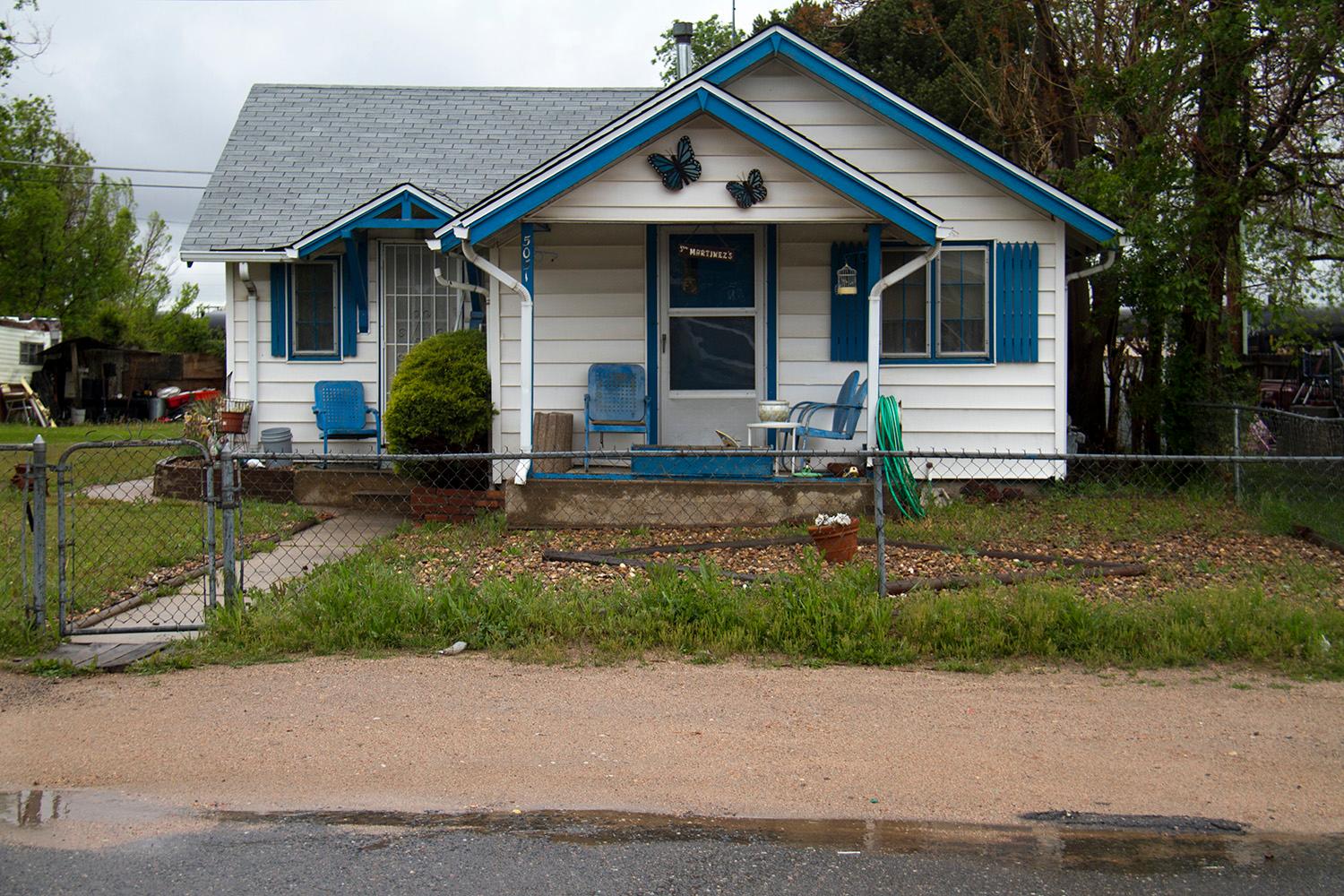Roads & Bridges. It's not the name of a RiNo speakeasy that's trying too hard. It's the quick-draw phrase uttered by any policymaker interested in striking a nonpartisan tone under the safe political umbrella of infrastructure.
But Denver's sidewalk network, the most basic transportation infrastructure of all, is lacking in safety. Ten percent of city streets are missing sidewalks, while 30 percent have sidewalks that are too narrow for people in wheelchairs, or for a couple to walk side by side, according to WalkDenver, a nonprofit that advocates for pedestrians.
Why? How? So glad you asked! (You did. A Denverite reader did, anyway. And you can ask your own questions at denverite.com/ask.)
City leaders and budgets decide the priorities.
Denver grew up around the car and our streets and spending priorities are proof. The city did not have a dedicated allocation for sidewalks until 2017, after WalkDenver and other advocates pushed for more funding. Sidewalk funding has grown annually since, though, plus voters approved bonds worth $48 million over 10 years for sidewalks. And the Denver City Council is mulling a fee or a tax.
The city has identified a fraction of the money it will cost -- $1.1 billion -- to complete the Swiss cheese network, according to estimates from the city's Denver Moves Pedestrians and Trails plan. Completing the grid would take more than two centuries to complete at this rate.
The maintenance system leaves something to be desired.
Imagine if you had to fix a pothole every time one popped up on the road in front of your home. This is how the city's sidewalk policy works. Even though sidewalks are part of the public right of way, the city depends on private property owners to repair and, in the case of new developments, build them from scratch.
Problem is, city officials have never really enforced that policy. And it's hard to blame them -- it disproportionately effects Denver's poorest residents, who unfortunately are more likely to need good sidewalks to walk and take transit. That's why the neighborhoods with the worst sidewalks are often lower income while some blocks of Cherry Creek have heated sidewalks.
Denver is starting to enforce its policy, however, and has created a fund to help residents with the cost.
No American city is really crushing the sidewalk game.
Ithaca, New York, is doing a decent job, WalkDenver executive director Jill Locantore says. Residents and business owners there pay an annual fee based on the area's foot traffic, and the city has special sidewalk districts, kind of like a business improvement district for walking. Kansas City recently passed a bond that transfers the burden to the city, not individual property owners. Then there's Los Angeles, where the city is spending $1.3 billion to fix sidewalks -- because it was sued under the Americans with Disabilities Act.
Major cities in Asia, Europe and South America don't really have this problem.
"I think in other countries they just build sidewalks like they do streets," Locantore said. Not building them is a weird American thing.













